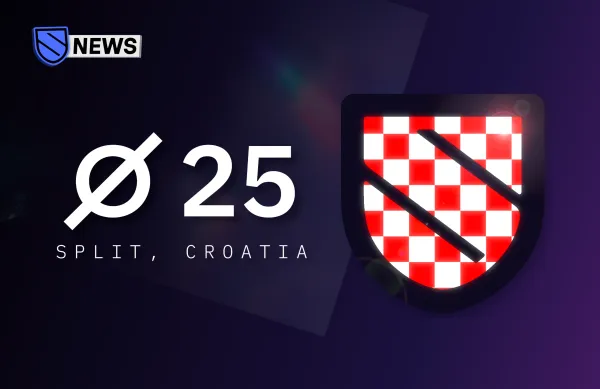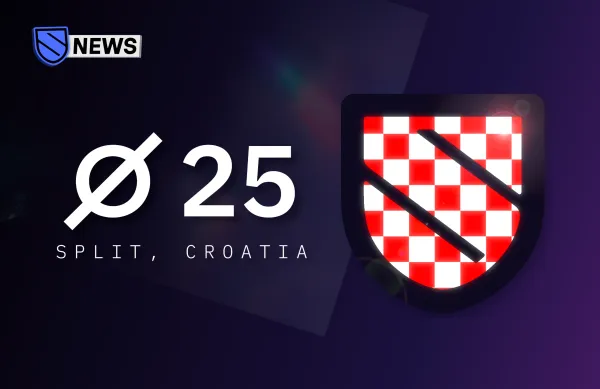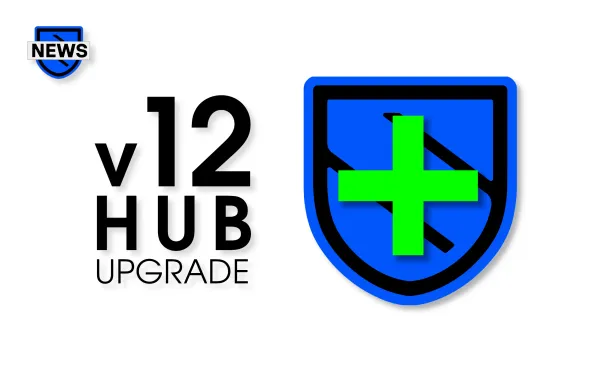Global Internet Shutdowns Since 2015: Data Revealed

The Scale of the Problem
When political unrest erupts, undemocratic governments may restrict public communication by shutting down internet access and social media platforms within their countries.
The Internet Shutdown Tracker, drawing information from internet watchdog NetBlocks, media reports, and NGOs, exposes which countries have resorted to such tactics since 2015.
- Total users impacted by internet shutdowns since 2015
5,861,630,751 people have been cut off from the internet due to government restrictions. It highlights the widespread impact of internet shutdowns on citizens' ability to access information, communicate, and exercise their right to freedom of expression. - Countries that have disrupted internet access since 2015
77 countries in total have employed this tactic to control information and suppress dissent. This statistic reveals the concerning prevalence of government censorship through internet shutdowns.
Africa
Internet shutdowns are a major concern in Africa, where 80% of the population has faced disruptions in the past nine years. This makes Africa the second continent globally with the most frequent use of internet restrictions.
Africa - Internet Disruptions Since 2015
| Total Disruptions | Reason for Disruption | Cases |
|---|---|---|
| 119 | - | |
| Protests | 57 | |
| Elections | 30 | |
| Other Political Turmoil | 31 | |
| Internet Law | 1 |
Africa - Internet Shutdown Tracker Data (Since 2015)
| Category | Count | Percentage |
|---|---|---|
| No. of countries | 20 | 37% |
| No evidence of disruptions | - | - |
| Any type of disruption | 34 | 63% |
| Currently restricting social media/messaging apps | 6 | 11.1% |
| Social media/messaging apps disrupted in the past | 25 | 46.3% |
| Network connection disrupted in the past | 26 | 48.1% |
| Affected People | 1,112,954,990 | 77.2% |
Asia
Asia dominates the world in internet shutdowns. A shocking 90% of Asians have been affected by internet restrictions since 2015.
Asia - Internet Disruptions Since 2015
| Total Disruptions | Reason for Disruption | Cases |
|---|---|---|
| 617 | - | |
| Protests | 209 | |
| Elections | 34 | |
| Other Political Turmoil | 362 | |
| Internet Law | 12 |
Asia - Internet Shutdown Tracker Data (Since 2015)
| Category | Count | Percentage |
|---|---|---|
| No. of countries | 17 | 34.7% |
| No evidence of disruptions | - | - |
| Any type of disruption | 32 | 65.3% |
| Currently restricting social media/messaging apps | 16 | 32.7% |
| Social media/messaging apps disrupted in the past | 28 | 57.1% |
| Network connection disrupted in the past | 20 | 40.8% |
| Affected People | 4,281,039,091 | 90.2% |
Europe
Internet shutdowns have been rare in most of Europe since 2015. However, Russia and Belarus are exceptions, with Russia accounting for a significant 60% and Belarus for 27% of internet shutdown cases in the region.
Europe - Internet Disruptions Since 2015
| Total Disruptions | Reason for Disruption | Cases |
|---|---|---|
| 15 | - | |
| Protests | 6 | |
| Elections | 3 | |
| Other Political Turmoil | 4 | |
| Internet Law | 2 |
Europe - Internet Shutdown Tracker Data (Since 2015)
| Category | Count | Percentage |
|---|---|---|
| No. of countries | 40 | 90.9% |
| No evidence of disruptions | - | - |
| Any type of disruption | 4 | 9.1% |
| Currently restricting social media/messaging apps | 2 | 4.5% |
| Social media/messaging apps disrupted in the past | 4 | 9.1% |
| Network connection disrupted in the past | 2 | 4.5% |
| Affected People | 190,910,050 | 25.8% |
North America
Only 2 out of 23 North American countries have experienced shutdowns, with Cuba being the primary culprit (89%)
North America - Internet Disruptions Since 2015
| Total Disruptions | Reason for Disruption | Cases |
|---|---|---|
| 9 | - | |
| Protests | 9 | |
| Elections | 0 | |
| Other Political Turmoil | 0 | |
| Internet Law | 0 |
North America - Internet Shutdown Tracker Data (Since 2015)
| Category | Count | Percentage |
|---|---|---|
| No. of countries | 21 | 91.3% |
| No evidence of disruptions | - | - |
| Any type of disruption | 2 | 8.7% |
| Currently restricting social media/messaging apps | 0 | 0% |
| Social media/messaging apps disrupted in the past | 1 | 4.3% |
| Network connection disrupted in the past | 2 | 8.7% |
| Affected People | 11,258,797 | 1.9% |
South America
South America presents a mixed picture. While 40% of its countries have implemented internet shutdowns since 2015, these restrictions impacted a substantial 60% of the population.
South America - Internet Disruptions Since 2015
| Total Disruptions | Reason for Disruption | Cases |
|---|---|---|
| 43 | - | |
| Protests | 7 | |
| Elections | 1 | |
| Other Political Turmoil | 31 | |
| Internet Law | 4 |
South America - Internet Shutdown Tracker Data (Since 2015)
| Category | Count | Percentage |
|---|---|---|
| No. of countries | 7 | 58.3% |
| No evidence of disruptions | - | - |
| Any type of disruption | 5 | 41.7% |
| Currently restricting social media/messaging apps | 0 | 0% |
| Social media/messaging apps disrupted in the past | 4 | 33.3% |
| Network connection disrupted in the past | 3 | 25% |
| Affected People | 265,467,823 | 60.6% |
Oceania
Oceania stands out as a bright spot, being the only region globally without documented internet shutdowns since 2015.
Oceania - Internet Shutdown Tracker Data (Since 2015)
| Category | Count | Percentage |
|---|---|---|
| No. of countries | 14 | 100% |
| No evidence of disruptions | 14 | 100% |
| Currently restricting social media/messaging apps | 0 | 0% |
| Social media/messaging apps disrupted in the past | 0 | 0% |
| Network connection disrupted in the past | 0 | 0% |
| Affected People | 0 | 0% |
Why Decentralized VPNs Are Crucial for a Free and Open Internet
The internet has become an essential tool for communication, information access, and participation in a globalized world. However, a growing trend threatens this freedom: government censorship and restrictions on internet access. This is particularly concerning during times of political unrest, as our analysis of internet shutdown data reveals.
The data shows a significant number of countries have implemented internet restrictions, impacting millions of people. These restrictions often target social media platforms, effectively silencing public discourse and hindering citizens' ability to access information. This is where decentralized Virtual Private Networks (VPNs) like Sentinel come into play.
Bypassing Censorship and Maintaining Open Access:
Unlike traditional VPNs, decentralized VPNs utilize a distributed network of servers. This network bypasses centralized chokepoints that governments can control. Imagine a highway with a single bridge – a centralized government can easily shut down that bridge and restrict traffic. Decentralized VPNs create a network of smaller roads, making it much harder to completely block access to information. This allows individuals to circumvent censorship and access the free and open internet, even when local internet service providers restrict content.
Protecting Privacy in an Uncertain Landscape:
The data also highlights the vast number of people affected by internet disruptions. This raises serious concerns about online privacy and security. Traditional VPNs can be vulnerable to government pressure or even infiltration. Decentralized VPNs like Sentinel address this issue by distributing data across a peer-to-peer network. Think of it like a whisper spreading through a crowd – it's difficult to track the source or silence everyone at once. This decentralized approach makes it significantly harder for governments or other actors to track or intercept users' online activity. This empowers individuals to protect their privacy and security online, especially in regions with limited internet freedom.
Empowering Individuals During Unrest:
Our analysis revealed that internet shutdowns often coincide with periods of political unrest. In these critical situations, it's vital for individuals to be able to communicate and document events. Decentralized VPNs play a crucial role by ensuring people have a way to connect and share information freely. This can raise awareness of human rights abuses and hold governments accountable. By providing a secure and uncensored communication channel, decentralized VPNs empower individuals to participate in democratic processes and advocate for change, even under challenging circumstances.
In conclusion, decentralized VPNs like Sentinel offer a critical tool for individuals facing internet censorship and restrictions. They empower users to bypass censorship, protect their privacy, and participate in a free and open internet, even during times of political unrest.

P2P NEWS
Powered by the Sentinel Growth DAO
The community's most-trusted nexus for news coverage of the Sentinel Ecosystem and its applications, distributed infrastructure, and third-party contributors across the globe.
SUBSCRIBE
Telegram • X • Newsletter
What is Sentinel?
Sentinel is a peer-to-peer global bandwidth marketplace which powers both privacy-focused consumer products and development utilities. The most prominent of these usecases at present are decentralised VPN (dVPN) applications and data acquisition for the training of AI models.
🎓 To learn more about Sentinel, check out more of our articles, visit the project's official website, or read the documentation.






